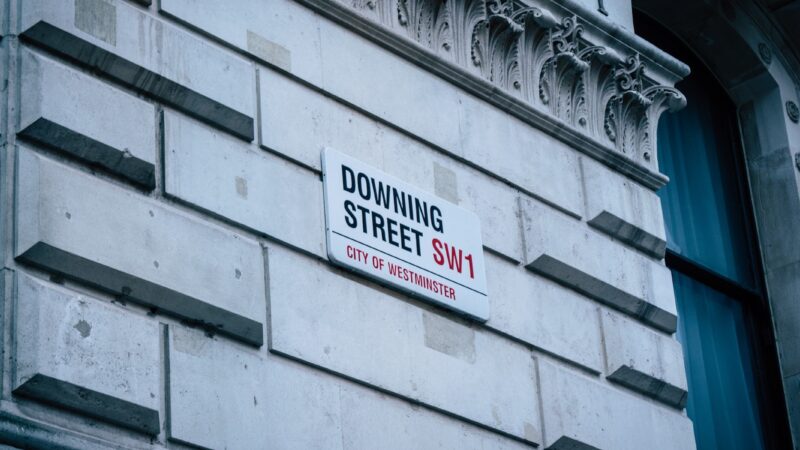AUKUS and The Path Towards an Anglosphere Bloc
In 2023, the international order seems completely up-ended. Moscow has reverted to imperialism with its invasion of Ukraine, China’s regime is unrelenting in its designs towards Taiwan and Iran is edging closer to acquiring a nuclear weapon. Three decades on since the end of the Cold War and it would seem that Western intentions for a peaceful world now lie in tatters.
Yet we Westerners face our own set of problems. The UK remains more or less directionless on the world stage, its economy and reputation in freefall. On the continent, Hungary and Poland seem determined to stall EU centralisation efforts and the once ironclad relationship between Paris and Berlin appears to be weakening. Meanwhile, the US is mired in a state of total electoral chaos that one would normally associate with a banana republic. Perhaps the next leader of the free world will be running the show from a prison cell. At this point, who really knows?
Recent years have seen the UK, like the US, be radically transformed into a viscerally divided country. Although the polls seemingly indicate a majority now regret Brexit and would seek to reverse it, little thought has been given to how willing the British public would be to adopt the Euro or join Schengen – both of which Brussels would force upon us if we were to rejoin. Yet staunch Brexiteers haven’t exactly had much to offer us either. Since leaving, we’ve just about managed to re-secure the existing trade agreements we already had as an EU member and have joined the Comprehensive and Progressive Agreement for Trans-Pacific Partnership (CPTPP) – which is predicted to grow the UK economy by just 0.08% over the next decade. Evidently, any future success we will enjoy as an isolated, declining power remains very unclear.
What is clear though is that the UK desperately needs bolder vision if it wants to drag itself out of the quagmire it is currently sinking into. It needs a new, invigorating national project that can unite its splintered political factions and galvanise support towards a stronger future. The UK has just exited one of the most successful blocs the world has seen, yet it may have already joined an even greater one – AUKUS.
AUKUS – an acronym of its member countries of Australia, the UK and the US – was formed in 2021 to act as a deterrent to Chinese aggression in the Indo-Pacific. As a military pact, its initial moves have been to assist Australia’s acquisition of nuclear-powered submarines as well as to step up information sharing on AI, quantum and hypersonic technologies.
Although originally hesitant about joining, New Zealand’s government has now expressed interest in becoming AUKUS’s fourth member, with Canada quickly following suit. The addition of these countries makes sense given that both have economic and geopolitical interests in the Pacific and equally view China as a threat. Furthermore, being members of the ‘Five-Eyes’ intelligence pact, neither would seek being shut out of any agreements involving information sharing.
However, their compatibility with AUKUS goes beyond military and security concerns. With a shared democratic ethos and a common system of governance, AUKUS represents not just a strategic pact, but also a values-based alliance uniting all of its members, including potential additions Canada and New Zealand. As such, the potential for AUKUS to welcome even broader collaboration seems apparent already.
Proposals for stronger ties between the five countries are nothing new. By far the most popular concept to be imagined has been ‘CANZUK’. Yet another acronym for its member states, this would involve a hypothetical trade and cooperation bloc comprising all aforementioned countries – with the notable exception of the US. Focusing strictly on expanding economic, security and foreign-policy collaboration, its proponents dismiss the idea of any political union. Crucially, free movement would be implemented, however – just not the kind we associate with Schengen. For it would bar anyone with a criminal record, an infectious disease or those considered to be a national security risk.
Its advocates certainly sell the CANZUK vision well. As they point out, with a population of at least 135 million and a combined GDP of over $6 trillion, CANZUK would be among the top four economic powers in the world. It would comprise an area of 18,187,210 km, making it larger than the Russian Federation. Moreover, with similar levels of development, the potential for the kind of one-sided migration occurring between poorer and affluent member states, as witnessed in the EU, would be minimised. It also helps that free-movement treaties are already in effect between some of these countries – notably the Trans-Tasman Travel Arrangement (TTTA) between Australia and New Zealand.
Yet for all its great potential, proponents have glossed over one major problem – trade. Whilst these countries combined make up a significant chunk of the global economy, commerce among them is minimal. As of last year, the UK was New Zealand’s ninth largest trading partner, Canada’s fifth and Australia’s eighteenth. Similarly, Canada ranks low on trade with Australia and New Zealand and vice versa. However, what they each have in common are strong trade links with the US – ranking anywhere from first to third largest trading partner among them. For this reason alone, an Anglosphere bloc without the US does not make sense economically.
This takes us neatly back to AUKUS – or more precisely, the need for its evolution. Embracing the aforementioned ideals of economic integration, foreign-policy coordination and the establishment of a common travel area would undoubtedly turbocharge AUKUS’s power and completely reshape global politics. The addition of Canada and New Zealand into the mix certainly aids this. AUKUS has already shown it is prepared to respond to a crisis, namely China. The looming threat of a Chinese-dominated century being the driving force behind a gradual transformation of AUKUS into an Anglosphere bloc should not be underestimated. Beijing’s potential to start to outpace the West economically, technologically and even militarily would naturally bring Australia, the UK, the US, Canada and New Zealand into each other’s arms.
Washington’s involvement would be vital for many reasons, including reducing the group’s dependency on trade with China, something that Australia has already declared it seeks to implement. Yet whilst the need for closer cooperation with a behemoth like the US is clear, it would be naïve to suggest that the US could afford to forgo such an arrangement. Indeed, the US needs the Anglosphere now more than ever. The initial reluctance of NATO members France and Germany to step up their support towards Ukraine and Macron’s comments about the EU distancing itself from American policy on China raises big concerns about Europe’s ability to commit to enforcing global security.
The EU itself is riddled by infighting over immigration, enlargement and the contentious issue of ‘ever-closer union’, casting doubt on its survivability. In short, America cannot rely on Europe in the long-term. The EU’s lethargic reaction to the Ukraine crisis underlines this. With multiple, often clashing, foreign-policy objectives among its member states, the prospect of a united Europe, ready to take on the geopolitical challenges of the 21st century, looks remote. If it took the continent as long as it did to pull together and reinforce its eastern frontier against invasion from its most immediate adversary, Russia, then little hope can be expected from future interventions either.
Contrast this with the response from the UK and the US. Both were quick to provide Ukraine with military support, whilst France and Germany sat back and hoped a diplomatic solution would prevail. For Berlin and Paris, their economic ties with Moscow greatly weakened their resolve for a more direct response, to the ire of the Anglosphere as well as fellow EU member Poland. The US, like the UK, now has to accept that its partners on the European continent do not always share its economic or geopolitical interests, nor are they fully capable of putting theirs aside for a common cause. Again, this further highlights the necessity of AUKUS for the US – and in many ways, it renders its expansion into an official bloc more of an inevitability than a hypothetical concept.
For the UK, the conclusion is self-evident. AUKUS is the only realistic option on the table for a directionless UK left out in the global cold. The alliance will continue to be crucial for the UK given our post-Brexit pivot to the Indo-Pacific. But the UK must push for something much larger than a military pact if it hopes to remain relevant in the 21st century. It must call for AUKUS’s expansion into a fully-fledged trade and cooperation bloc, encompassing the totality of the Anglosphere. There may well be push-back and the notion that this could happen overnight would be folly. Nevertheless, the UK will need to start somewhere if it wishes to shake off the Brexit blues. It must step up and begin to take charge of its destiny.
Dreams of a return to the EU are just that – dreams. The mere political unpalatability of having to surrender our currency and control over our borders makes a return to the EU simply incompatible with most British voters. There would be no chance of a rebate over the UK’s financial contributions either. We would need to be all in, or stay out. Nor should we presume that Brussels will be eager to welcome back a country that so openly defied it, for fear of sparking similar exits. We could expect similar reactions from member states such as France, which twice vetoed the UK’s application to join back in the 1960s, as well as Spain, which would no doubt force us into concessions on Gibraltar. The UK must now accept this new relationship with the continent and simply move on.
AUKUS provides the UK with a chance to reinvent its beleaguered image, both at home and abroad. It paves a way out of the tangled forest of confusion and division over our place in the world and heralds a return to a more optimistic and confident UK. The economic benefits it would bring, combined with the chance to rekindle ties with Australia, Canada and New Zealand, and repair our fractured ‘special relationship’ with the US, make it simply too good an opportunity to pass up.
With the EU, Russia and China now having all put their cards on the table, the need for an official Anglosphere bloc has never been more immediate. All that is missing now is the willpower to make it happen.









The Hidden Costs of Exporting CO2 Emissions
Introduction
As the world grapples with the urgent need to combat climate change, discussions surrounding CO2 emissions and their impact on the global economy has taken centre stage. One contentious issue that has emerged is the concept of CO2 import tariffs. Such tariffs would aim to address the soaring demand of exporting carbon emissions to countries like China and India while seemingly reducing emissions domestically. However, I will proceed to argue that this approach harms the British economy and businesses alike, creating an illusion of progression in a desperate ploy for Western nations to ‘feed their image‘ on the global stage, this issue has also exacerbated the case to accelerate the implementation of CO2 import tariffs – levelling the playing field for sustainable, British industrial goods.
The Mirage of Reduced Emissions
The introduction of CO2 import tariffs, scheduled for 2026, is undoubtedly a step in the right direction, however, there is a growing consensus that these tariffs should be implemented sooner rather than later, with more stringent fees. The primary reason for this urgency is the alarming trend of British businesses struggling to compete with offshore prices, due to their minimal to no CO2 regulations in countries like China and India.
Statistics will tell the same story: Over the past decade, European nations have made significant strides in reducing their CO2 emissions. For instance, the European Union’s emissions fell by 24% between 1990 and 2019. However, as a result of these reductions, imports from Asian nations, particularly China, have surged. In 2019, the UK alone imported goods worth £49.5 billion from China, a significant portion of which was produced in industries with higher CO2 emissions. This shift in emissions from the West to the East raises critical questions about the effectiveness of domestic emission reduction efforts.
Yes, it is obvious Western nations have made a conscious effort to drastically manage C02 emissions, however it cannot be denied that this effort has a little to no effect on global emission rates. Since 2005 for the US and 1990 for Europe, CO2 emissions have operated at a downward tangent, however at the same time both China and India have increased their emissions year on year – with no reduction.
Levelling the Playing Field
The argument in favour of accelerating CO2 import tariffs rests on the premise of creating a level playing field for sustainable goods. British companies that have had to adhere to stringent environmental regulations have faced a significant competitive disadvantage when competing against products manufactured in countries with laxed emission expectations. This not only harms domestic businesses, but also undermines the goals of reducing global emissions, thus the only identifiable solution would be to either reduce our own emission regulations, or introduce a boarder tariff, pinpointed at nations with subnormal CO2 rates.
Through imposing these higher import tariffs on goods produced in extreme CO2-emitting countries, the UK can incentivize foreign manufacturers to adopt cleaner manufacturing practices, actively reducing global emission rates – rather than feeding our emissions elsewhere. Such tariffs would reflect the true environmental cost of the imported goods, reducing the price advantage enjoyed by high-emission industries abroad. This, in turn, would encourage British consumers to choose more sustainable options, fostering a transition towards cleaner and greener products. But that isn’t the only benefit! As a result, one would expect us to become more self-sufficient, and as a nation be less reliant overseas and more focused on our own industrial goods.
Addressing Arguments Against CO2 Import Tariffs
Some argue that Western nations have enjoyed an unfair advantage for centuries and that it is now their responsibility to bear the economic costs of climate change. While historical inequalities can indeed be argued, I would contend that any attempts to do so would be in vain, combined with a lack of understanding that if tomorrow we relaxed all of our climate regulations (which is a lot), then our economic situation would soar higher – deceitfully so – than fellow European nations.
Picture a scenario where the UK could potentially usher in a wave of economic benefits – via little to no climate regulations. Industries seeking lower production costs might see the UK as a more attractive destination, enhancing our global competitiveness. Sectors with high energy consumption, like manufacturing and heavy industry, would find it financially advantageous to operate in a less regulated environment, resulting in greater job creation. Does that sound familiar? Because this is precisely how China and co have operated over the last 20 years, summarizing why their economy has taken such a colossal leap.
Arguing that because of historical inequalities we should just expect Western nations to continue to lose business and incur high costs for the sake of climate change, and only to see reduced emissions move elsewhere, simply ignores the interconnectedness of our global economy. The environmental damage caused by unchecked emissions in one part of the world ultimately affects us all. By exporting emissions to countries with fewer regulations, we are merely shifting the problem, not solving it. If global emissions continue to rise, while our own emissions head towards net zero, it begs the question: what is the point in all of this? Why persist in regulating our businesses to the brink of collapse, relinquishing our capacity to sustain our domestic market, and fostering an import-dependent culture, all while our endeavours seem to yield no significant results?
Conclusion
To conclude, it is undeniable that CO2 import tariffs represent a crucial tool in addressing the harmful practice of exporting emissions to countries with non-existent regulations. While there is a similar scheme set to be introduced in 2026, there is a compelling case for their acceleration and strengthening of this. The fact of the matter is that European nations’ reduction in CO2 emissions has only led to a surge in imports from high-emitting countries, highlighting the need for immediate action and showcasing to other nations that the only way to grow their economy is to mass produce (with high CO2 costs) for the sake of us Western nations to ‘look good on the global stage’.
These tariffs are not about punishing other nations, but rather about creating a level playing field for sustainable and British goods. They will encourage cleaner production practices globally and drive the transition to a more sustainable and equitable global economy.
Photo Credit.